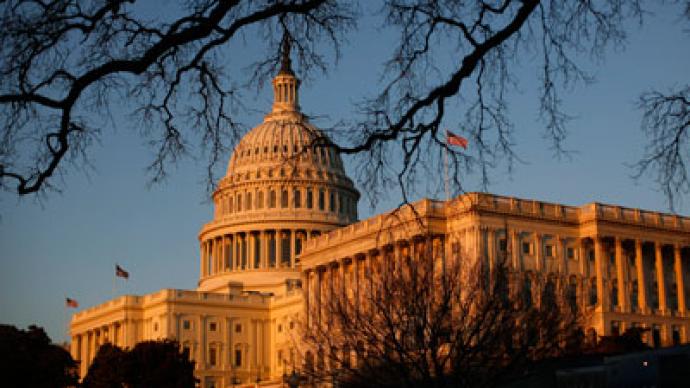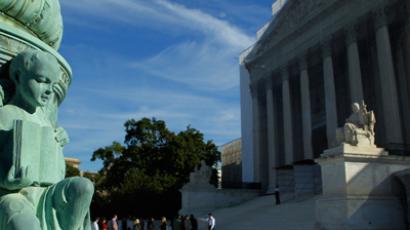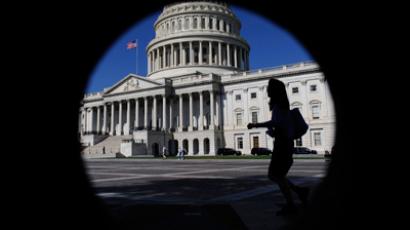Senate set to approve FISA spying bill

With less than a week until a powerful legislation expires that lets the government eavesdrop on the phone and email conversations of Americans, the Senate has convened in DC to discuss whether or not to renew the FISA Amendment Act.
The 2008 FISA Amendment Act, an update to the Foreign Intelligence Surveillance Act of the 1970s, allows the government to wiretap any conversation involving US citizens, without obtaining a warrant, as long as investigators reasonably suspect those talks to involve at least one party located outside of the United States. Despite demands from members of Washington’s intelligence committee, though, very little information if any has been made available about how the government uses the FISA Amendment Act, or FAA, and whom they target.“Everyone becomes suspect when big brother is listening,” Rep. Dennis Kucinich (D-Ohio) said recently while arguing against renewing the FAA in the House of Representatives.Despite pleas from Rep. Kucinich and others, the House has agreed to support renewing the FAA, a decision that has met the approval of the Obama White House as well. Earlier this month, Sen. Saxby Chambliss (R-Ga.) even told his colleagues in the Senate that there was no need to debate the bill at all since it had already received the blessing of US President Barack Obama.Had Sen. Chambliss had his way, the Senate was likely to have skipped debates altogether and approved a renewal of the FAA without any discussion. Senate Majority Leader Harry Reid (D-Nevada) urged his peers to do otherwise, though, and insisted that talks be held in Washington immediately in order to tackle the FAA before it expires.Should the Senate not re-new the FAA before December 31, the bill will expire and the warrantless wiretapping provisions will be erased. On Thursday, December 27, members of the Senate met in Washington to begin discussing the act. A vote was scheduled later in the afternoon, but then was moved to Friday. If the FAA is renewed, the federal government will be extended the ability to warrantlessly wiretap Americans for another five years. If that is the case, though, Congress will be given another chance to consider provisions that will provide for at least some transparency only a day later.Sen. Ron Wyden (D-Oregon), a long-time opponent of FISA, is expected to have the chance to introduce an amendment on Friday that, if approved, will force the National Security Agency (NSA) to finally open up about their use of the FAA’s warrantless wiretapping provisions.Earlier this year, Sen. Wyden told Wired’s Danger Room, “If no one will even estimate how many Americans have had their communications collected under this law then it is all the more important that Congress act to close the ‘back door searches’ loophole, to keep the government from searching for Americans’ phone calls and emails without a warrant.”Wyden — who sits on the Senate Foreign Intelligence Committees — has unsuccessfully asked time and time against for the NSA to explain how they use the FAA. Even if the FAA is renewed this week, the approval of Sen. Wyden’s proposed amendment would mean the NSA would have to at least give a general estimate of how many Americans it has targeted since 2008.Senators Rand Paul (R-Kentucky), Jeff Merkley (D-Oregon) and Patrick Leahy (D-Vermont) are all expected to propose amendments that will influence how the NSA uses the FAA too.














